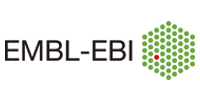Training materials
3405 materials found
-
e-learning
Foundations of protein structure: Principles of protein architecture and function

-
e-learning
A guide to sequence analysis tools: Free access tools at the Job Dispatcher

-
WORKSHOP: Spatial omics sampler
Spatial omics
-
instructr/rnaseq_counts2bio
Sequencing RNA-Seq Transcriptomics R Next generation sequencing RNA-seq
-
SciLifeLab-Training/open-science
Data management FAIR data
-
SciLifeLab-Training/BGE-HiC-course
Genome assembly Genomics
-
BGAcademy23/busco
Genome assembly Genomics
-
filonico/UNIX_and_bash_basics
Unix/Linux Version control
-
rmwaterhouse/ERGA-Bitesize-BUSCO-genome
Genome assembly Genomics
-
GTPB/AM22
Genomics Metagenomics Sequencing Next generation sequencing